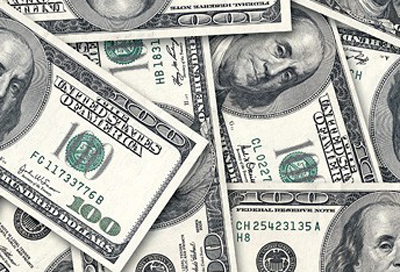Friday, 11 September 2015 11:35
 TOKYO: A broadly upbeat mood across Asian markets helped boost higher-risk currencies Friday, although analysts said traders were on edge ahead of a possible US interest rate hike next week.
TOKYO: A broadly upbeat mood across Asian markets helped boost higher-risk currencies Friday, although analysts said traders were on edge ahead of a possible US interest rate hike next week.
The upbeat mood comes at the end of a week of high global volatility caused by the Chinese economic crisis and uncertainty about the Federal Reserve’s rate plans.
The yen, considered a safe bet in times of turmoil, retreated, with speculation growing that the Bank of Japan will introduce another round of stimulus to jolt the economy, which would see more cash flooding financial markets.
The dollar bought 120.82 yen compared with 120.63 yen Thursday in New York, while the euro was at 136.31 yen compared with 136.01 yen. The single currency also rose against the dollar, sitting at $ 1.1282 from $ 1.1275 in US business.
The Malaysian ringgit gained 0.20 percent and the South Korean won gained 0.80 percent while the Australian dollar edged higher after sitting at six-year lows earlier in the week.
The gains were in line with a broad advance in regional equity markets Friday, which followed an uptick on Wall Street.
“Markets are starting to price in expectations for more easing from the BoJ,” Akira Moroga, manager of currency products at Aozora Bank in Tokyo, told Bloomberg News.
But he added: “Dollar-buying is restrained as markets pare back the probability of the Fed raising rates next week.”
Focus is now on the Fed policy meeting that ends Thursday, with market opinion split on whether it will lift rates for the first time in nine years.
While an increase is expected by the end of the year, the bank’s decision has been muddied by the recent turmoil in global markets caused by fears over the slowdown in China’s economy.
A hike in borrowing costs would likely hinder investment possibilities and also fan a flight of capital back to the United States in search of better returns, to the detriment of emerging markets.
Talk of a widening of Japan’s already huge bond-buying programme gathered pace Thursday after an influential Japanese lawmaker called for extra stimulus in a Bloomberg News interview.



























